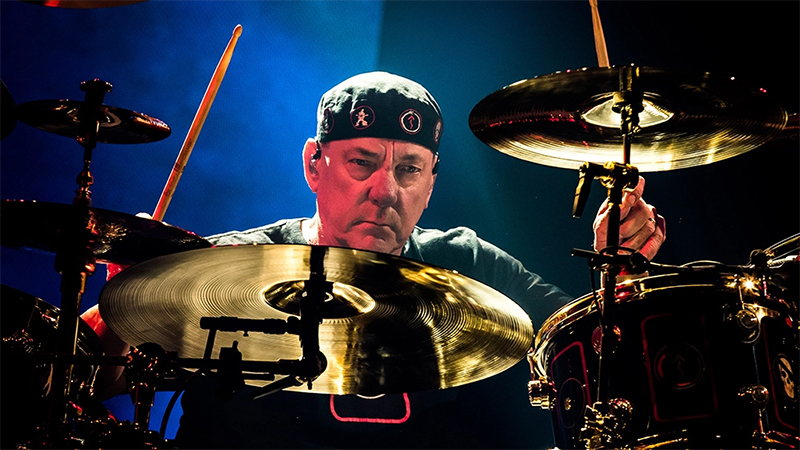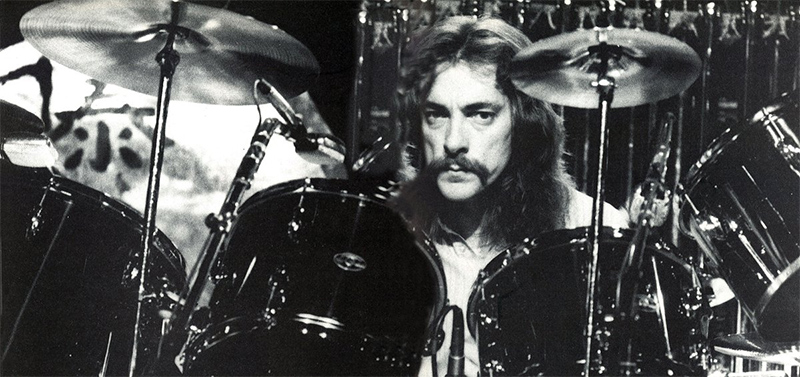
My sister was five years older than me, and music (and books) were her refuge.
Because she tended to hang out with people a bit older than her, the music she listened to was definitely well ahead of what I bought as a kid.
One day on her bedroom floor was an album with a glowing red star on the cover and “RUSH 2112.”
I’d heard the band on the radio, mostly the hits from their debut album (the song: “Working Man”) and the title track from Fly By Night.
But Rush’s 2112 was different.
The Concept
Rush’s 2112 was not the first concept album I heard at the time (my dad was a Jethro Tull fan, so that went to Thick as a Brick). But 2112 was the first concept album that found me lying on my stomach on the floor, listening to the music and reading the lyrics.
I couldn’t get enough.
It wasn’t just music…it was a whole side of an album dedicated to a story that enthralled me.
Moving Pictures
To say I looked up to my big sister is an understatement. And when it came to my step brother, my adoration for another human being bordered on worship.
Summers were spent visiting my father in Kansas, and the summer after Rush’s Moving Pictures came out found the three of us all agreeing that there were fewer things better in the world than that damn album.
Of course, “Tom Sawyer” was the tune the world loved, but it was “Red Barchetta” — again, a song that was all about story — that hooked me.
I went much deeper than my sister and step brother. For them, Rush was just another cool band. But for me, every song was a secret to unlock.
Moving to Texas
In 1984, my mother and step father told me we were moving to Texas.
I could think of no greater hell than to leave my friends and a love for certain bands behind in northern Illinois.
I was happy to discover in my first week in Texas that someone in the Lone Star State played Dungeons and Dragons. And through that friendship, I found other friends…all into Rush and D&D.
More friends followed — the people who affected me for the better in those times were all shaped by a love for a band that made it okay to be a geek…or a writer…or a musician…or an artist.
I Want to Write…
I always wanted to be a writer, but it was only in my very early teens that I seriously considered it. And from that moment, because youth works in hyper-time, I felt I needed to hurry to meet my goals.
And then, in 1982, came a Rush album (Signals) that seemed written for me. Not just because “Subdivisions” summed up what it was like living in the cracks of so many in-betweens, but because the song “Losing It” started a clock in my goofy little mind.
These lines still knock about my head, even though I only have a little white in my beard and my face is not very lined…
The writer stares with glassy eyes, defies the empty page.
His beard is white, his face is lined, and streaked with tears of rage.Thirty years ago, how the words would flow, with passion and precision.
But now his mind is dark and dulled by sickness and indecision.And he stares out the kitchen door,
Where the sun will rise no more…
I don’t know what my future as a writer holds, but even if I never “make it,” as long as I don’t lose it, I’ll be fine…
Not About Lumberjacks
I don’t listen to Rush like I once did, but Peart’s influence over my writing is evident today. If you listened to Purvis on Not About Lumberjacks, the influence is clear.
In the story, I slipped in a line or two from Rush’s “Freewill,” all centered around a kid who lets a 12-sided die decide his fate.
And, in the best ending I may ever write, there is mention of the “Fountain of Lamneth.”
Peart’s lyrics also influenced Alone in HQ. This story would not exist without Rush’s 2112 and tune “Anthem,” leading me to Ayn Rand’s novella of the same name.
The other Rand books I tried reading after Anthem were…well, I’ll just be kind and say terrible!
But I will always have a soft spot for Anthem.
“Alone in HQ” is partially framed by the story, with the final scene a complete homage to the ending of the book.
Before the Stone…
Neil Peart will always be known for a relentless pursuit of seeing what his best could be. Few would argue that he attained it [perhaps, many times over], but he remained humble about his abilities throughout his life.
And maybe that’s why he was a person I always looked up to. I know I will never write a perfect novel, because a perfect novel will never exist. But if I work hard before the stone and keep sharpening my words, I will perhaps have perfect moments.
If you’re wise, you know you have only yourself to fight against.
And if you’re very wise, you also know you don’t even need to take up that fight.
The best you can hope for is doing the things you love with mighty vigor and hope for the best.
I will always strive for more. Each book I start will be harder than the one before it, and I will work as long as it takes until it’s the thing I dreamed of.
I’m content in my pursuits because, for most of my life, I’ve looked up to the professor.
May he live forever in our memories and in the countless works he inspired…


We’ll put Chris, growing up with a drummer and being exposed to many genres of the music he was always well respected and admired by me and my sister Patti who you know played her entire life as a professional. Thank you for honoring such a large part of music and the role model for so many drummers and changing the face of music…great job old friend
Tony,
Yeah, Patti was so damn cool. I remember her just being nice and giving me rides home when I visited your family after school when my mom moved us to Loch Lomond. And then finding out she played drums really well. Just this very kind person transforming into someone else behind a drum kit…it was always too cool.